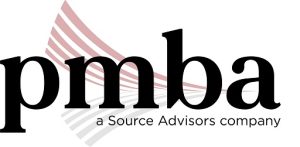The Supreme Court recently released its decision on the landmark sales tax case, South Dakota v. Wayfair. The Court overturned the “physical presence” standard that previously governed the determination of when sales tax was due. Wayfair held that the correct standard in determining the constitutionality of a state sales tax law is whether the tax applies to an activity that has “substantial nexus” within the taxing state. State officials around the country are in the process of exploring and/or implementing a policies for taxing sales by remote sellers to take advantage of the new economic Wayfair test and the landscape is changing rapidly.
The Wayfair decision has made it critical for remote sellers to review their current business against existing and quickly evolving state legislation in order to make determinations as to which states they may now be required to collect and remit sales tax.
What Does This Mean for Art Dealers?
A common misconception about the Wayfair ruling is that it only affects online sales or e-commerce businesses. Unfortunately, this is not the case. Any business that ships or performs services remotely into a state is subject to the new economic nexus standard. Each state is free to put in place their own economic nexus rules with the common threshold adoption being sales of over $100,000 or 200 transactions in a 12-month period into a state creating a sales tax collection requirement for that state. Many art dealers and galleries are finding themselves having to be compliant in multiple states due to only a handful of transactions being shipped into economic nexus states. Currently, all states (except for MO and FL) have enforceable economic nexus rules with many more states to enforce their economic nexus rules later this year.
Common Nexus Pitfalls for Art Dealers
Besides economic nexus, there are other forms of nexus art dealers should be aware of. Many art dealers and galleries consign their pieces to other galleries in other states or may send their art pieces to an auction in another state. This can also potentially create nexus. Sales representatives, agents, and online referrers can also create nexus. Finally, economic nexus has not eliminated the physical presence standard. When art dealers attend shows such as Art Basil in Miami, they need to consider if the physical presence standard has been met and if sales tax collection is required.
What Should Art Dealers Do Next?
The first step for all art dealers and galleries is to perform an economic nexus evaluation report. This report will analyze the galleries sales by state and business activities and determine where nexus exists. Although the information to perform such a study is available through various online resources, there are many nuances that companies need to consider, such as:
- When does the threshold counts begin?
- What is the effective date of the laws of each state?
- What type of sales are included in the threshold calculation (retail, wholesale or exempt)?
- What years do I need to review sales for?
- Is there pending legislation?
All of these factors can significantly change the result of an economic nexus evaluation report.
Second, once you have determined which states your company is required to collect sales tax in, you must determine how you are going to comply. For example:
- Is your invoice process manual?
- How do you determine what rates to charge and what is taxable?
- Do you use accounting or point of sale systems where the tax calculations can be automated?
- Who will complete the monthly, quarterly or annual sales & use tax returns?
There are many services that are available to automate the tax collection and remittance function. However, in certain cases, a manual process may be more appropriate. Companies such as ArtBase and ArtLogic are working on solutions to directly integrate into tax automation software such as Avalara.
Third, you must register within each state for a license to collect sales tax. Again, there are many resources to assist you in this area. However, you must make sure you are completing the registrations on a timely basis. If you are registered before collection requirements, you may find yourself filing unnecessary ZERO sales tax returns month after month.
It is strongly suggested that art galleries and dealers seek advice from their CPA or sales tax consultant when performing the economic nexus evaluation report. Although the majority of states have economic nexus rules, the conditions are continuously changing or updating. You must be able to have a trusted advisor that can keep you informed.
Please feel free to reach out to us for a no-cost proposal at ecarrasco@pmba.com or call 212-835-2218.
